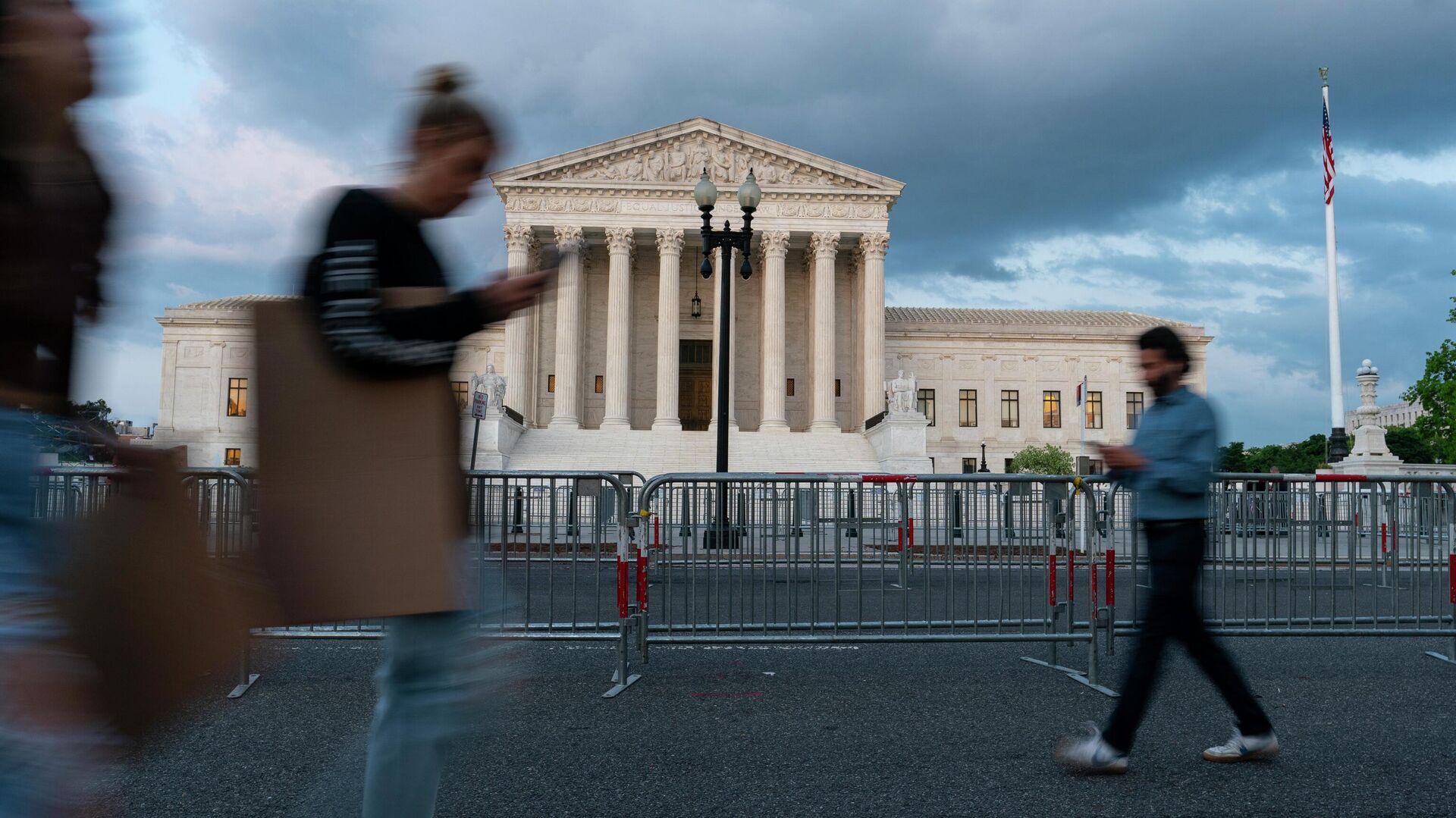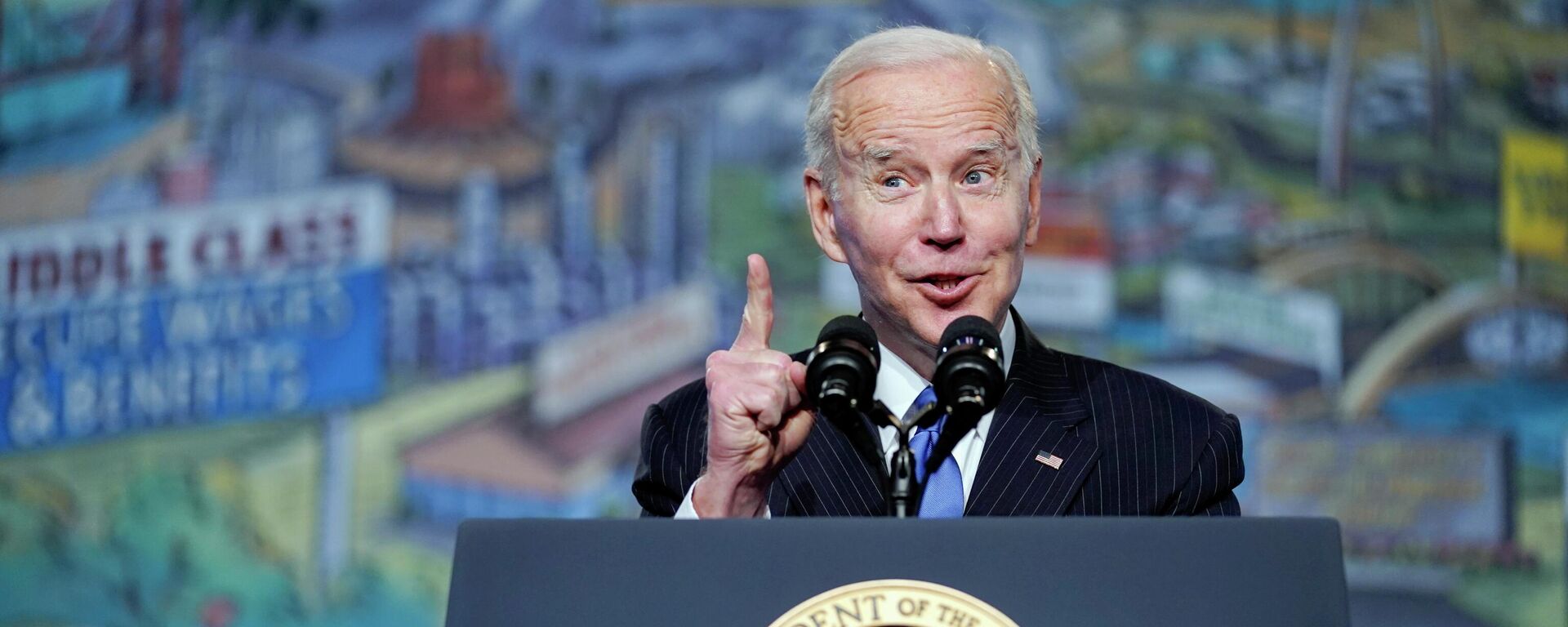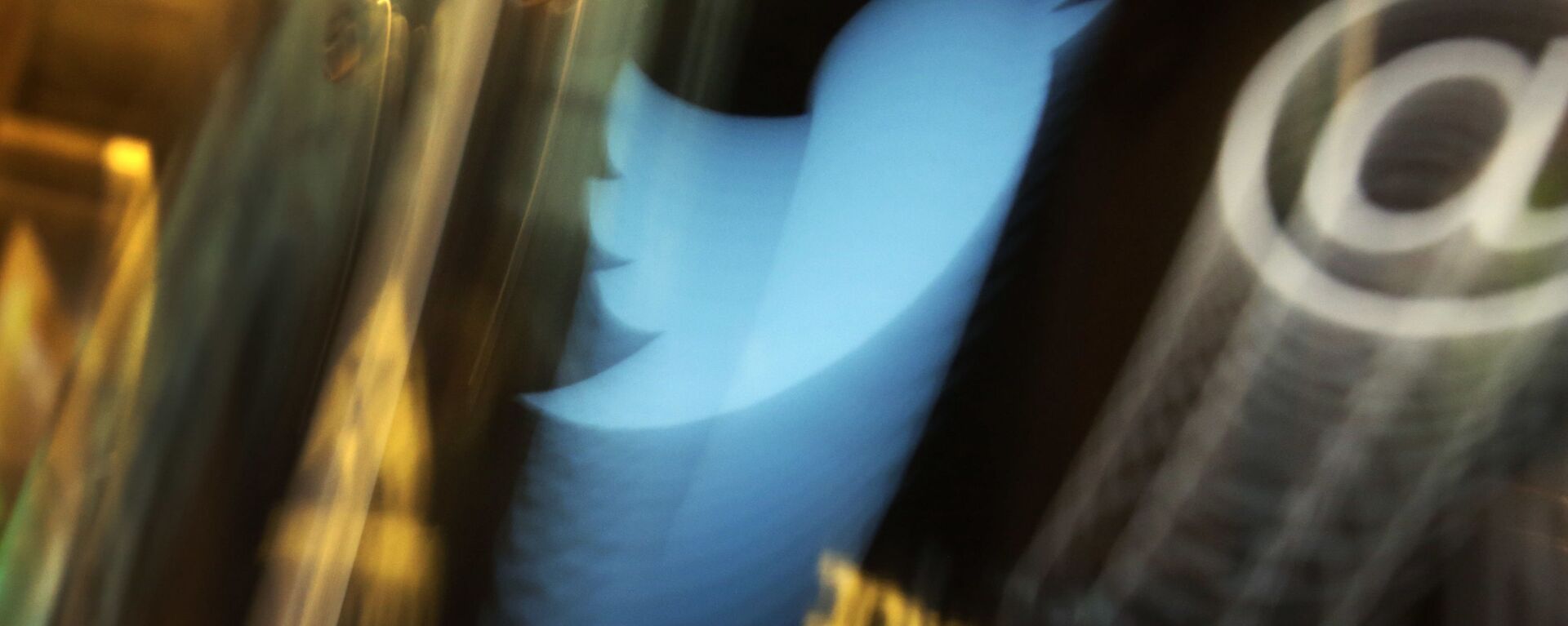https://sputnikglobe.com/20220602/us-supreme-court-suspends-texas-law-targeting-partisan-censorship-on-social-platforms-1095933008.html
US Supreme Court Suspends Texas Law Targeting Partisan ‘Censorship’ on Social Platforms
US Supreme Court Suspends Texas Law Targeting Partisan ‘Censorship’ on Social Platforms
Sputnik International
The US Court of Appeals for the Fifth Circuit previously overruled a lower court decision that blocked HB 20, Texas’ controversial social media law that allows... 02.06.2022, Sputnik International
2022-06-02T02:46+0000
2022-06-02T02:46+0000
2023-04-30T05:40+0000
us supreme court
john roberts
samuel alito
texas
florida
texas state legislature
texas governor greg abbott
ron desantis
social media
censorship
https://cdn1.img.sputnikglobe.com/img/07e6/05/05/1095293982_0:161:3071:1888_1920x0_80_0_0_50689efb62f0a4e00c27ce644148c311.jpg
In a 5-4 ruling, the US Supreme Court has granted an emergency stay request from the Computer and Communications Industry Association (CCIA) and NetChoice, two tech industry groups challenging the constitutionality of a Texas law crafted in response to conservative claims of a widespread liberal ideological bias on major social media platforms.The stay overturns a previous Fifth US Circuit Court of Appeals ruling and suspends the law as an associated case is heard by the Fifth US Circuit Court of Appeals, and was granted by SCOTUS Chief Justice John Roberts and Justices Stephen Breyer, Sonia Sotomayor, Brett Kavanaugh, and Amy Coney Barrett.Texas House Bill 20 (HB 20) allows the state and individual Texans to file lawsuits against social media companies if their platforms “censor” users by banning accounts, removing or discriminating against certain content, or blocking users over their viewpoints or geographic location.However, NetChoice and the CCIA–whose members include Twitter, Google, and Meta–filed a lawsuit against the state of Texas, arguing that the government overstepped its bounds with HB 20 and infringed their “first amendment rights to engage in their own speech and to exercise editorial discretion over the speech published.”SCOTUS Justice Samuel Alito was joined by Justices Clarence Thomas and Neil Gorsuch in a dissent in which he claimed that the high court has yet to form a “definitive view on the novel legal questions” brought forward in association with Texas’ legislative decision.SCOTUS Justice Elen Kagan also dissented, but did not join Alito.HB 20 was originally signed into law in September 2021 by Texas Gov. Greg Abbott (R), who claimed at the time that the legislation protects Texans from “wrongful” social media censorship.A similar bill was passed by the Republican-led Florida Legislature and signed into law in May 2021 by Gov. Ron Desantis (R). However, the 11th US Circuit Court of Appeals’ three-judge panel unanimously ruled this month that the legislation is an unconstitutional violation of the First Amendment.A decision has yet to be made regarding the constitutionality of Texas’ HB 20.
https://sputnikglobe.com/20220505/two-us-states-sue-biden-admin-over-pressure-collusion-with-big-tech-to-censor-information---report-1095297833.html
https://sputnikglobe.com/20220523/distrust-for-users-choices-breeds-us-social-media-censorship-1095724420.html
texas
florida
Sputnik International
feedback@sputniknews.com
+74956456601
MIA „Rossiya Segodnya“
2022
News
en_EN
Sputnik International
feedback@sputniknews.com
+74956456601
MIA „Rossiya Segodnya“
Sputnik International
feedback@sputniknews.com
+74956456601
MIA „Rossiya Segodnya“
us supreme court, john roberts, samuel alito, texas, florida, texas state legislature, texas governor greg abbott, ron desantis, social media, censorship
us supreme court, john roberts, samuel alito, texas, florida, texas state legislature, texas governor greg abbott, ron desantis, social media, censorship
US Supreme Court Suspends Texas Law Targeting Partisan ‘Censorship’ on Social Platforms
02:46 GMT 02.06.2022 (Updated: 05:40 GMT 30.04.2023) The US Court of Appeals for the Fifth Circuit previously overruled a lower court decision that blocked HB 20, Texas’ controversial social media law that allows state residents and the Texas Attorney General’s Office to sue platforms that make moderation decisions based on “the viewpoint of the user or another person.”
In a 5-4 ruling, the
US Supreme Court has granted an emergency stay request from the
Computer and Communications Industry Association (CCIA) and
NetChoice, two tech industry groups challenging the constitutionality of a Texas law crafted in response to conservative claims of a widespread liberal ideological bias on major social media platforms.
The stay overturns a previous Fifth US Circuit Court of Appeals ruling and suspends the law as an associated case is heard by the Fifth US Circuit Court of Appeals, and was granted by SCOTUS Chief Justice John Roberts and Justices Stephen Breyer, Sonia Sotomayor, Brett Kavanaugh, and Amy Coney Barrett.
Texas House Bill 20 (HB 20) allows the state and individual Texans to file lawsuits against social media companies if their platforms “censor” users by banning accounts, removing or discriminating against certain content, or blocking users over their viewpoints or geographic location.
However, NetChoice and the CCIA–whose members include Twitter, Google, and Meta–filed a lawsuit against the state of Texas, arguing that the government overstepped its bounds with HB 20 and infringed their “first amendment rights to engage in their own speech and to exercise editorial discretion over the speech published.”
SCOTUS Justice Samuel Alito was joined by Justices Clarence Thomas and Neil Gorsuch in a dissent in which he claimed that the high court has yet to form a “definitive view on the novel legal questions” brought forward in association with Texas’ legislative decision.
“It is not at all obvious how our existing precedents, which predate the age of the internet, should apply to large social media companies, but Texas argues that its law is permissible under our case law,” Alito wrote, adding that “Texas should not be required to seek preclearance from the federal courts before its laws go into effect.”
SCOTUS Justice Elen Kagan also dissented, but did not join Alito.
“We are relieved that the First Amendment, open internet, and the users who rely on it remain protected from Texas’s unconstitutional overreach,” said Chris Marchese, counsel for NetChoice.
HB 20 was originally signed into law in September 2021 by Texas Gov.
Greg Abbott (R), who claimed at the time that the
legislation protects Texans from “wrongful” social media censorship.
A similar bill was passed by the Republican-led Florida Legislature and signed into law in May 2021 by Gov. Ron Desantis (R). However, the 11th US Circuit Court of Appeals’ three-judge panel unanimously ruled this month that the legislation is an unconstitutional violation of the First Amendment.
“Put simply, with minor exceptions, the government can't tell a private person or entity what to say or how to say it,” wrote Judge Kevin Newsom, a circuit court judge appointed to the bench by former US President Donald Trump. “We hold that it is substantially likely that social media companies — even the biggest ones — are private actors whose rights the First Amendment protects.”
A decision has yet to be made regarding the constitutionality of Texas’ HB 20.



